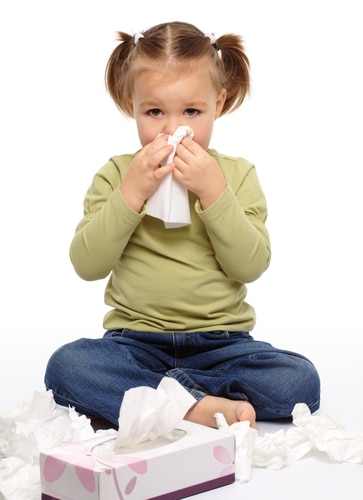 According to medical experts, your child will suffer, approximately, 6 colds this year – several of which will cause sleepless nights and missed days of school. And one of the worst symptoms will be that dry, hacking cough that just won’t go away. While you may be tempted to reach for that drugstore cough syrup, natural remedies have proven safer and more effective in tackling dryness, inflammation and throat irritation. And best of all – your child will gladly swallow any one of these sweet, mild-tasting treatments.
According to medical experts, your child will suffer, approximately, 6 colds this year – several of which will cause sleepless nights and missed days of school. And one of the worst symptoms will be that dry, hacking cough that just won’t go away. While you may be tempted to reach for that drugstore cough syrup, natural remedies have proven safer and more effective in tackling dryness, inflammation and throat irritation. And best of all – your child will gladly swallow any one of these sweet, mild-tasting treatments.
Honey is a wonderful healing agent used in a variety of natural cold remedies. It diminishes coughs by coating the throat and relieving irritation. Honey is also an excellent, natural bacteria fighter and contains, polyphenols, powerful antioxidants that help combat viral infections.
A teaspoon every 4-6 hours is enough to coat the throat effectively. Look for buckwheat honey, a dark variety that is especially rich in antioxidants. *Avoid giving honey to babies less than 1 year old, because it may cause infant botulism.
Slippery elm is a time-honored remedy for treating coughs. It contains mucilage, which soothes an inflamed throat and suppresses the urge to cough. While it can be found in a wide variety of natural cold remedies and teas, your child will, most likely, enjoy a flavor-enhanced product.
Look for lozenges that have been naturally sweetened or sore throat syrup containing honey, anise and other soothing ingredients. Slippery elm is considered very safe, so simply follow the directions on the package.
Cocoa can actually stop a cough in its tracks. It contains an ingredient called theobromine, which appears to calm nerves in the lungs that are responsible for coughing. Researchers have found that cocoa can actually be more effective than pharmaceutical codeine and without the side-effects.
For soothing relief, offer your child a warm cup of hot chocolate made from quality cocoa solids. Health food stores carry powdered varieties that contain more nutrients and are sweetened without high fructose corn syrup. *Milk added to hot chocolate may increase congestion in some children.
Pineapple juice is rich in cold-fighting vitamin C and is especially helpful in taming persistent coughs. Pineapples contain bromelain, an enzyme that acts as an anti-inflammatory and actually loosens mucus from the throat.
Choose 100 percent, unsweetened juice, and make sure there are no artificial flavors or colors. Natural health practitioners suggest adding a teaspoon of honey, which will help activate the bromelain. *Pineapple juice remedies are also very useful in treating sinus infections.
Wild cherry bark contains the plant chemical prunasin, which loosens phlegm and relaxes bronchial muscles. It acts as a mild sedative, calms coughs and relaxes the nervous system, which may help kids sleep better. Cherry bark is also prized for its ability to soothe stomach cramps and other digestive disturbances associated with the flu.
Health food stores will often stock cherry bark cough syrups that include licorice root and honey, for added benefit. *Look for natural elixirs, specifically designed for children age two and over.
All of these natural cough remedies are easy on the taste buds and mild enough for continual use. As with any sweet-tasting substance, dosages should be monitored. Even natural sugars can cause blood sugar spikes and restlessness when consumed in large quantities. Always consult your physician, if your child develops a high fever or if symptoms persist.
Sources:
Uncommon Cures for Everyday Ailments, Boardroom, Inc. 2008
The Green Pharmacy Guide to Healing Foods, James A. Duke, Ph.D., Rodale, Inc. 2008
Bottom Line’s Health News, Boardroom, Inc. 2006
Related Articles By Cathe:
Does Being Physically Fit Reduce the Risk of a Cold?
Weather the Cold and Flu Season with Immune-Boosting Foods
Exercising When You’re Sick: Is It Even Worth It?

